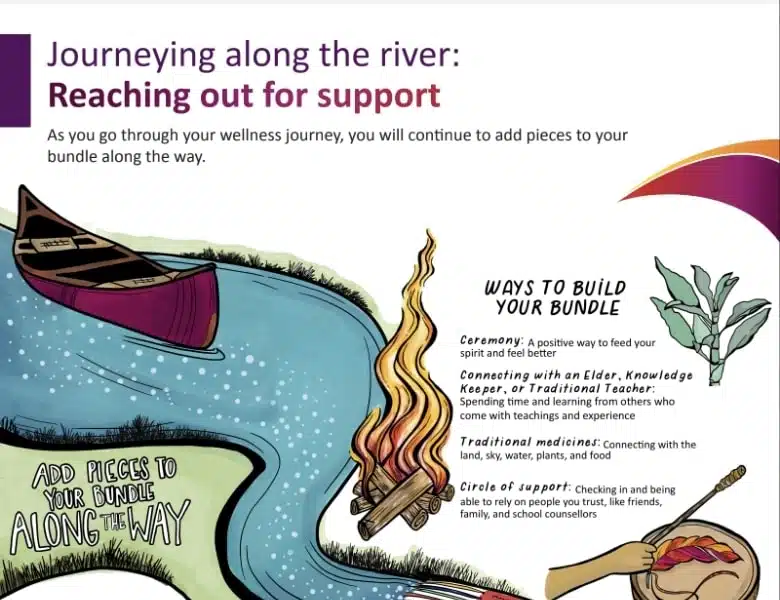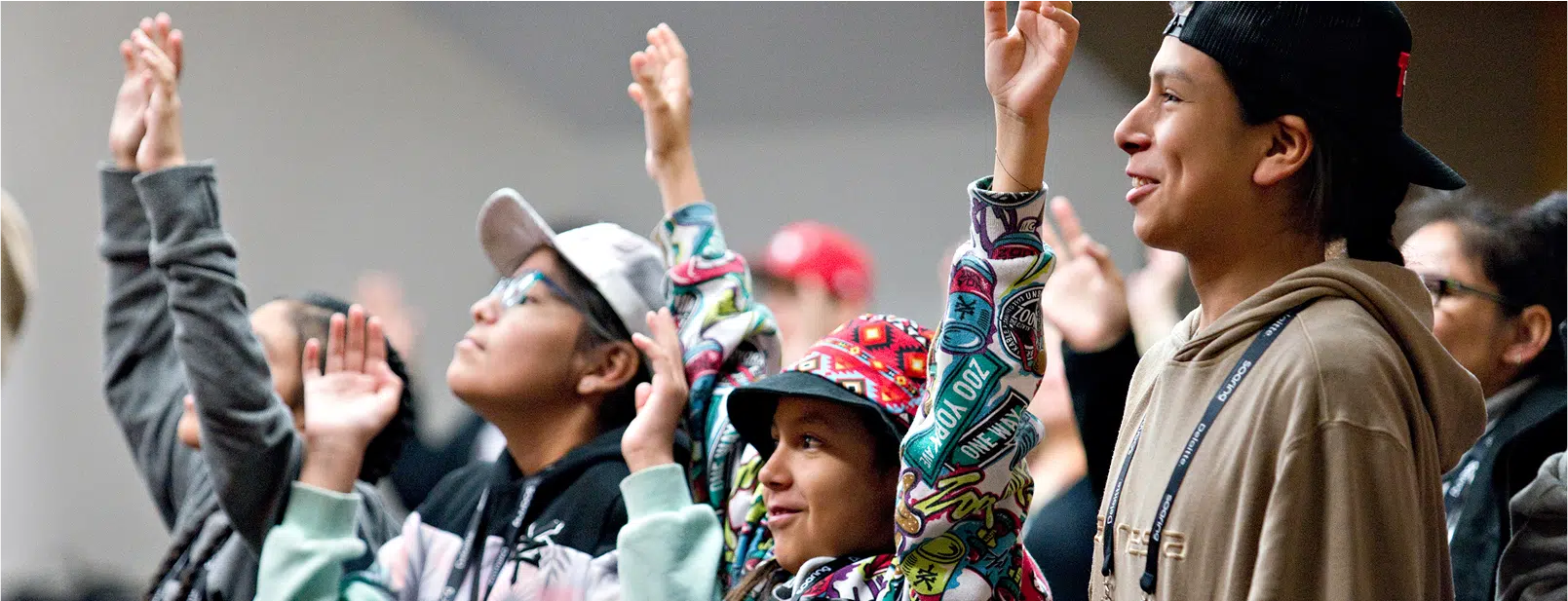
Image Text Details
Description:
Journeying along the river: Reaching out for support
As you go through your wellness journey, you will continue to add pieces to your bundle along the way.
Ways to Build Your Bundle
- Ceremony – A positive way to feed your spirit and feel better.
- Connecting with an Elder, Knowledge Keeper, or Traditional Teacher – Spending time and learning from others who come with teachings and experience.
- Traditional medicines – Connecting with the land, sky, water, plants, and food.
- Circle of support – Checking in and being able to rely on people you trust, like friends, family, and school counsellors.
Obstacles You May Face
- Getting lost – Not knowing where to start or who to turn to for support.
- Being frozen – Feeling weighed down or hopeless about things that are happening around you.
- Not Ready – Feeling nervous to reach out, or that you need more time until you’re ready to receive help.
- Not finding services – Discovering that services don’t exist in your community or that the services that do exist aren’t a good fit with what you need.
- Facing stigma – Feeling misunderstood or treated with disrespect.
Gifts to Carry When Reaching Out
- Be kind to yourself – Finding help can be challenging.
- Ask people you know – If they can connect you with someone who can help. There may also be spaces in your community (like friendship centres or sports programs) where you can be introduced to the supports you’re looking for.
- It’s okay to be afraid – Talk to people you know will be supportive: they will want to help you.
- Decide what works for you and trust the process. You can start small!
Even if it’s a struggle to find the support you need, there is help out there. It’s important to believe you can find help. And it’s always worth asking for that support.
If you’re having trouble reaching out, try to connect with a helpline—like the Hope for Wellness Help Line (1 855 242 3310), or use the chat box at www.HopeforWellness.ca to speak with a counsellor online.
This resource was developed by a team of experts, including young people and a Knowledge Keeper, with support from Indspire; the Margaret and Wallace McCain Centre for Child, Youth & Family Mental Health; and the Sunnybrook Research Institute.

